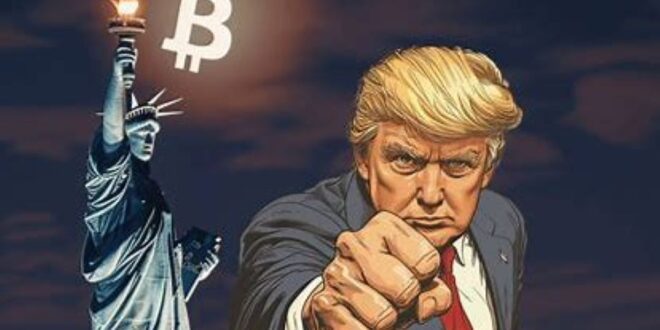As speculation grows over former President Donald Trump’s potential return to the White House, discussions around his trade policies—especially tariffs—are resurfacing. With reports suggesting he may reintroduce or expand tariffs on China and other trading partners, traders are questioning whether such moves could impact Bitcoin’s price, as they did in the past.
How Tariffs Previously Affected Bitcoin
During Trump’s presidency, trade tensions between the U.S. and China led to increased market volatility. Bitcoin often reacted to these uncertainties, sometimes serving as a safe-haven asset while at other times experiencing sell-offs due to broader economic concerns.
In 2019, for example, escalating tariffs led to fluctuations in risk assets, including Bitcoin. While some investors turned to crypto as a hedge against economic uncertainty, others liquidated holdings amid global market downturns, causing temporary price declines.
Key Factors to Watch
- Market Sentiment Shift – If Trump reintroduces aggressive tariffs, traditional markets could see increased volatility, potentially influencing Bitcoin’s movement.
- Strength of the U.S. Dollar – Trade wars often impact currency markets. A stronger dollar, resulting from tariffs, could put downward pressure on Bitcoin as investors move toward more stable assets.
- Institutional Reaction – With more institutional involvement in Bitcoin now than in 2019, large investors’ responses to trade policy shifts could play a bigger role in shaping BTC’s price action.
- Inflation and Monetary Policy – Tariffs can drive inflation higher by increasing the cost of imported goods. If the Federal Reserve responds with interest rate hikes, Bitcoin could face selling pressure as higher yields attract capital away from risk assets.
Will Bitcoin Crash Again?
While past tariff-related market disruptions impacted Bitcoin, today’s environment is different. Bitcoin adoption has grown significantly, with institutional investors playing a larger role. Additionally, factors such as spot Bitcoin ETFs and global macroeconomic trends may counterbalance any tariff-related shocks.
Traders should closely monitor trade policy developments, Federal Reserve actions, and overall market sentiment. While history suggests that tariffs could create short-term price swings, Bitcoin’s long-term trajectory will likely depend on broader economic trends rather than a single policy decision.
 Business Sandesh Indian Newspaper | Articles | Opinion Pieces | Research Studies | Findings & News | Sandesh News
Business Sandesh Indian Newspaper | Articles | Opinion Pieces | Research Studies | Findings & News | Sandesh News



